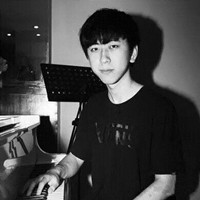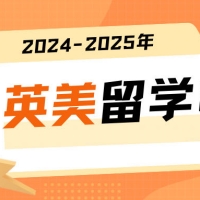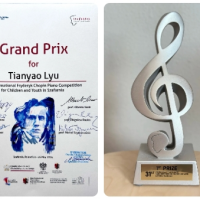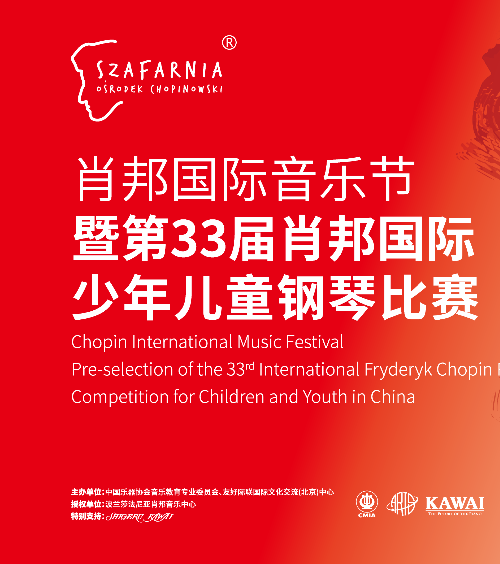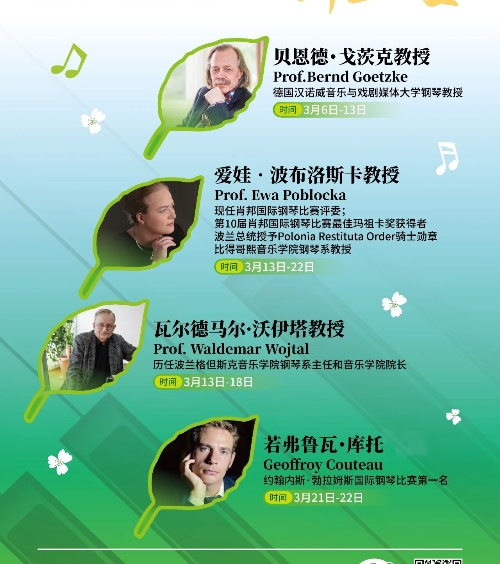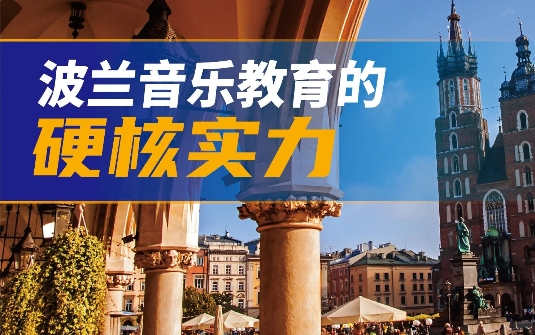学习日记
中国人最容易用错的25个英文单词,连字典也查不出来的那种
发布时间:2016-12-19 12:14 来源:艺术留学广场 关键词:艺术留学,音乐留学,英语,英语单词,英语交流,美国英语,英国英语,单词,英文,英文单词你有没有遇到一种情况,看到一个英语单词,以为自己知道是什么意思,但是看完释义后才谎言大悟自己是错的。今天,小编就给大家整理一些你以为是“这样”却是“那样”…
1 、Irony
What you think it means: Something that is funny. 你认为单词的含义是:滑稽的事。
What it really means: Contrary to what you are expecting.单词的真正含义是:事与愿违的。 This is a famous one because so many people get this wrong so often. It’s also kind of hard to explain, so we’ll use an example. The Titanic was boasted about as being 100% unsinkable and then in 1912 it was sunk anyway. That is what is called cosmic irony. When a starving vegetarian eats a pepperoni pizza, that is what is called situational irony.
这是一个典型的单词,因为经常有人用错。解释起来可能有点困难,所以我们还是举例说明吧。泰坦尼克号号称100%不会沉没,但1912年它还是意外沉没了,这就叫“宇宙反讽”。要是某个饿得不行的素食者忍不住吃了块香肠披萨,那就叫“情境反讽”。
There are other kinds too, such as dramatic irony and Socratic irony. Believe it or not, sarcasm is actually irony. When you say something sarcastically, your tone and your words mean two opposite things. That is ironic. Irony can be funny but not everything funny is irony.
当然还有其他分类,比如“喜剧式反讽”和“苏格拉底式反讽”。不管你信不信,irony其实和sarcasm(讽刺)是一个意思。当说到某件事很讽刺时,你的语调和用词意在表达完全相反的两种情况。这就是ironic(反讽)。反讽可以是滑稽的,但并不是所有滑稽的事都可以称得上“反讽”。
2、 Travesty
What you think it means: A tragedy or something unfortunate. 你认为单词的含义是:悲剧或不幸的事。
What it really means: A mockery or parody. 单词的真正含义是:拙劣的模仿或恶搞。 This is another one that people have wrong fairly frequently. You've heard people call 9/11 a travesty. Truth be told 9/11 was a tragedy. A travesty is actually a mockery or a parody. One might say that a Weird Al Yankovic album is a travesty. With how often this word is associated with tragedy, we wouldn't be shocked if that definition were eventually added as an acceptable meaning. Until then, it doesn't mean anything bad happened.
这也是人们经常用错的一个单词。有人把9.11事件说成travesty,其实他是想说是个tragedy(悲剧)。Travesty其实是指拙劣的模仿或恶搞。你可以说艾尔•扬科维奇的专辑是travesty(恶搞的)。鉴于travesty这个单词总是被人们和tragedy(悲剧)搞混淆,或许以后travesty里面也能加入“悲剧”的含义吧。不过到目前为止,这个单词跟“不好的事情”完全扯不上关系。
3、 Ultimate
What you think it means: The one, the only. The best. 你认为单词的含义是:某个,唯一的,最好的。
What it really means: The last item of a list. 单词的真正含义是:列表中的最后一项。 Some people do actually use this one properly. You may see someone list off a bunch of things and hear them say, “Okay, at the store we need eggs, milk, juice, and ultimately, butter.” That is actually the proper use of ultimate. There is no other context or added context. It simply means the last one.
确实也有人能够正确使用这个单词。你或许看到过别人写出一串列单,然后听到他们说:“嗯……我们要去商店买点鸡蛋、牛奶、果汁,最后(ultimately)还有黄油。”这才是ultimate的正确使用方法。这里不存在其他内容或补充内容,ultimate就表示“最后一个”。
4 、Conversate
What you think it means: To have a conversation. 你认为单词的含义是:进行交谈。
What it really means: Nothing. 单词的真正含义是:压根没有这个词。 Conversate actually doesn’t exist and I’ll prove it to you. Go into a program that underlines words with red if they’re spelled wrong. Now type out conversate. Did you see the red line? Conversate was meant to be a mixture of conversation and converse and be used as a verb. However, converse is a verb and there really isn’t a need for a second verb to describe the same action.
Conversate这个单词其实是不存在的,这我可以证明。找个能标红错误拼写的程序,然后输入conversate这个单词,你应该能看到这个单词被标了红色下划线吧?conversate应该是conversation(交谈)和converse(交谈)的混合词,词性是动词。可是,converse(交谈)本身就是动词,根本就没必要再造一个动词来描述同一个行为了。
5 、Peruse
What you think it means: To skim or browse. 你认为单词的含义是:略读或浏览。
What it really means: To observe in depth. 单词的真正含义是:深入观察。 When you peruse something, you are actually taking a very close look at it. When you're at a record store and you're just running through a stack of records, you are just browsing. If you pick up a record and look at the artist, track list, and additional information on the back, then your are perusing.
当你peruse(深入观察)某事物时,说明你看得非常仔细。假设你在唱片店穿过一排排的唱片架,那就是“浏览”。如果你拿起一张唱片查看背后的艺术家、目录和其他信息,那就叫peruse(深入观察)了。
6 、Bemused
What you think it means: Amused. 你认为单词的含义是:愉快的。
What it really means: Confused. 单词的真正含义是:困惑的。 This is one of the many words on this list that will make you strongly dislike the English language. Despite looking all but identical to the word amused, bemused doesn't even come close to meaning the same thing. If you are bemused then you are actually confused.
这个单词可能本清单中“荣膺”让你讨厌英语的原因之一。尽管bemused(困惑的)在拼写上跟amused(愉快的)很相似,但这两个单词的含义却并不一样。如果你bemused,说明你其实很困惑。
7 、Compelled
What you think it means: To do something voluntarily by choice. 你认为单词的含义是:志愿选择做某事。
What it really means: To be forced or obligated to doing something. 单词的真正含义是:被迫或有义务做某事。 This is one that people get wrong and it's rather understandable. The real definition is very close to the definition people generally use. The difference is the motivation. When people say compelled, they think the person wants to perform the action. In fact, they are forced to do it regardless of their personal feelings. Here's an example. When you're in court, you are compelled to give honest testimony. You may not want to, but it doesn't matter because you have to.
这个单词被人们搞错其实倒也情有可原。它的真实定义和人们通常误用的含义很接近,但区别就在于动机如何。当说到compelled(被迫)时,人们以为说话者想做某事,但实际上,说话者是有违自身情绪而被迫去做某事的。举个例子,在出庭时,你就是compelled(被迫)如实作证的,你可能心里不情愿,但不管怎样你只能这么做。
8、 Nauseous
What you think it means: To feel ill. 你认为单词的含义是:感觉不舒服。
What it really means: To cause feelings of illness. 单词的真正含义是:令人不舒服的。 This is another understandable mishap that a lot of people make. If you actually feel sick then you are nauseated. The object that made you feel ill is nauseous. Here’s how this works. If you're at an amusement park and you’re sitting next to a full trash can, the fumes from the trash may make you feel ill. That means the fumes from the trash can are nauseous because they are making you feel nauseated.
许多人用错这个单词也是情有可原的。如果你果真感到不舒服,那么你会nauseated(作呕),让你感到不舒服的东西是nauseous(作呕的)。请看下面的例子。假设你坐在游乐园一个满满的垃圾桶旁边,垃圾桶里冒出的烟雾让你感到不舒服。这就是说,垃圾桶里冒出的烟雾是nauseous(令人作呕的),因为它让你感到nauseated(作呕)。
9、 Redundant
What you think it means: Repetitive. 你认为单词的含义是:重复的。
What it really means: Unnecessarily excessive. 单词的真正含义是:过剩的。 This one is tough because you can use it wrong but unintentionally use it right. When you repeat something a bunch of times, it can become redundant, but redundant expands far beyond just repeating things over and over. A popular thing companies are doing now is firing people but instead of calling it “getting fired,” they call it “eliminating redundancies.” The premise being that the employee they’re firing is unnecessary and excessive and they are thus eliminating them. In pretty much any scenario where there is simply too much of something, it is redundant.
这个单词有点复杂,因为你可能总会用错,却也不一定什么时候就用对了。当你不断重复某事很多次后,事情可能就会变得redundant(多余的),但是redundant这个词所包含的意思远不止“不断重复”。当下公司都很流行解聘雇员,但他们不会说“炒你鱿鱼”,而是称之为“裁员”;但前提是,被裁的员工是可有可无的、多余的,这样就可以裁掉了。在很多情况下,如果某事太多太剩,那就是redundant(多余的)了。
10、 Enormity
What you think it means: Huge, enormous. 你认为单词的含义是:巨大的,庞大的。
What it really means: Profoundly immoral or evil. 单词的真正含义是:极其不道德的或邪恶的。 Don't beat yourself up over this one because no one knows this one off the top of their head. Enormity sounds like enormous and as with many of our other examples, here we expect words that sound alike to have similar meanings. Enormity simply means really evil. An example of how to use it is the following: “The enormity of the crimes committed by the Nazis in World War II.” It doesn't mean the enormous crimes, it means the heinous crimes.
不要因为用错这个单词而自责,因为没多少人能不假思索地知道这个单词。Enormity(穷凶恶极)的发音和enormous(庞大的)比较相近,正如先前提过的许多例子一样,对于发音相似的单词,人们也很容易认为它们的意思也一样。Enormity是指“极其邪恶”。举个例子来说明如何使用这个单词吧。“纳粹分子在二战中犯下的罪行是enormity(穷凶恶极的)。”它不是说enormous(庞大的)罪行,而是指十恶不赦的罪行。
11、 Terrific
What you think it means: Fantastic, good. 你认为单词的含义是:妙极了,极好的。
What it really means: Horrific, to inspire fear. 单词的真正含义是:可怖的,令人害怕的。 This is another one that we expect will be changed in the dictionary eventually because barely anyone uses the real meaning anymore. When people say they feel terrific, they mean to say they feel fantastic. An example of something terrific is King Kong. You see a giant monster and it inspires fear. We're going to loop awesome in with this one too. Awesome simply means to inspire awe and people often use it to describe something really good.
我们认为这个单词的含义以后也会在词典里重新修订,因为现在几乎没有人会去使用它的真正含义。当人们说感觉terrific(恐怖的)时,他们是指感觉fantastic(好极了)。《金刚》就是典型的terrific(可怖的)例子,因为它是巨怪,让人感到恐惧。在此顺便说说awesome这个单词吧。Awesome是指“让人感到惊惧”,但现在人们用这个词的时候主要是指“某事好极了”。
12、 Disinterested
What you think it means: Bored. 你以为单词的含义是:无趣的。
What it really means: Neutral. 单词的真正含义是:中立的。 A good way to remember this one is that there is a word that means bored and it's uninterested. If you're uninterested, you're bored. Being disinterested is the long-form equivalent of stating that you don't care about something.
要记住这个单词,有个办法就是别忘了已经有一个单词表示“无趣的”——这个单词就是uninterested。如果你uninterested(不感兴趣),那自然就“无趣”了。Disinterested是表示“对某事不关心”的一个单词。
13、 Irregardless
What you think it means: Without regard. 你以为单词的含义是:不管怎样。
What it really means: Nothing. 单词的真正含义是:它也是不存在的。 Like conversate above, irregardless isn't actually a word. When people say irregardless, they actually mean to say regardless. Regardless means without regard. Irregardless has been used so often that it actually is in the dictionary now and that's kind of sad. Even though it is technically there, there are a large number of people who don't consider it a word. You can save yourself a couple of keystrokes and a tongue lashing by just using regardless.
跟前面的conversate一样,irregardless这个单词其实也不存在。当人们说irregardless时,其实是想说regardless。Regardless是指“不管怎样”。Irregardless一直被频繁使用,所以现在确实也纳入了词典,这可真无奈啊!不过,尽管它在字典里占有一席,但很多人并不觉得它是个单词。既然用regardless就行了,何必还要多敲几下键盘、多发一个音符来费事呢?
14、Chronic
What you think it means: Severe. 你以为单词的含义是:剧烈的。
What it really means: Over the course of a long time. 单词的真正含义是:历时长久的。 This is definitely one that people ought to know better. When you have severe pain, it is just severe pain. If you have chronic pain, you have been in pain for a long, long time. Chronic conditions and diseases are called chronic because they won't go away and not because they're overly severe.
人们绝对需要好好了解这个单词的含义。假设你受到剧烈疼痛,那它只是剧烈疼痛而已。如果你有chronic(慢性的)疼痛,那你可得很久很久地承受这疼痛了。慢性状况和疾病之所以是chronic(慢性的),是因为它们不会消退,而不是说它们极其严重。
15、 i.e.
What you think it means: For example. 你以为单词的含义是:比如。
What it really means: In other words. 单词的真正含义是:换句话说。 This is one among a number of shortened words that confuse people. Here's a quick guide on how to use them. Et cetera is etc., example is ex. or e.g., and in other words is i.e. When you use i.e. you're essentially putting it there to let people know that you're going to be stating the same information in different words. Here's how it really works. It's June and I moved into my new apartment in April, i.e., two months ago.
这是一个容易给人造成困惑的缩略词,下面就简洁地告诉大家如何使用它。Et cetera(以此类推)的缩略词是etc.,example(比如)的缩略词是ex.或e.g.,而in other words(换句话说)的缩略词是i.e.。如果你使用i.e.,就表示你在换用不同的词来表述同一个信息。下面就是具体用法:现在是六月,我是四月份搬进新公寓的,i.e.(换句话说),两个月前。
16、Decimate
What you think it means: To destroy or annihilate 你以为单词的含义是:毁坏或击败。
What it really means: To destroy ten percent. 单词的真正含义是:10%毁坏。 This one is really goofy and one day this won't be true. For the time being, decimate actually means removing only ten percent of something. If you know a little bit about words it's not difficult to figure out. The prefix “dec” means ten. However, the traditional definition of this word is antiquated and it'll probably be changed eventually. Until then, it's technically correct to use a word like exterminate or annihilate instead.
这个单词有点别扭,或许以后就没人用了。不过现在而言,decimate是指“只抽取某事物的10%”。如果你稍微了解一点英语构词法的话,这就不难理解了。它的前缀“dec”就是“十”的意思。不过,这个单词的传统定义比较古旧,估计以后会有所改变。但在那之前,最好还是使用exterminate(铲除)或annihilate(歼灭)替代吧。
17、 Panacea
What you think it means: A cure. 你以为单词的含义是:治愈。
What it really means: A cure for a lot of things. 单词的真正含义是:万灵药。 This one is easy to confuse because the explanation is virtually the same even if the definitions are vastly different. A panacea is something that cures a lot of things all at once. For instance, penicillin is a panacea. It cures a bunch of diseases. The flu vaccine is not a panacea because it only protects against the flu.
这个单词很容易混淆,因为即便定义迥异,解释起来实质还是一样的。Panacea(万灵药)能立刻治愈各种疾病。比如说,盘尼西林就是panacea(万灵药),它能治疗很多疾病;而流感疫苗就不是panacea(万灵药),因为它只预防流感。
18、 Fortuitous
What you think it means: Lucky. 你以为单词的含义是:幸运的。
What it really means: By chance. 单词的真正含义是:偶然碰巧。 There is a difference between luck and chance. Unfortunately, people use the two interchangeably, so much so that it's difficult to explain the differences anymore. Lucky is an event that happens by chance that can be described as fortunate. Winning the lottery is lucky. Fortuitous means simply by chance. For instance if you drop your basketball and it bounces into the road and gets hit by a car, that's a fortuitous instance. It's neutral, so it can be good or bad things that happen by chance.
运气和机会是有区别的。可是人们总把它们交互使用,所以很难再去解释其中的区别了。运气是偶然发生的一件事,可以视为“幸运的”。中彩票是幸运的。Fortuitous是指“纯属偶然”。举个例子,假设你没拿住篮球,结果篮球弹到路上击中了一辆车,这就是fortuitous(纯属偶然)。这个单词是中性的,既可以指偶然发生的好事,也可以指偶然发生的坏事。
19、 Plethora
What you think it means: A lot of something. 你以为单词的含义是:很多事物。
What it really means: More than is needed. 单词的真正含义是:多余。 This is one I use incorrectly all the time. In fact, I almost used it a couple of times in this very article. Plethora simply means that there is more of something than is needed. For instance, you may think that 5,000 people is a plethora of people. However, when you put them into a hockey arena that seats 13,000 people, it's actually less than half capacity and therefore not a plethora. If you had 13,500 people in that same arena, that would be a plethora of people.
这个单词是我总用错的。其实,这篇文章里可能也有几次相关的错误。Plethora是指“再也不需要什么了”。比如,你可能觉得5000人是很多人,但是,如果你把这些人放到能容纳13000人的冰球场,那么人数还不到容量的一半,所以就不能算plethora(多余);如果你把13500人放到那个冰球场,那就是plethora(多余)的了。
20、Total
Total means exactly what you think it means, but total is used unnecessarily on a frequent basis. When there is a total of 50 people who do something, the total is 50 whether or not you use the word “total.” Or you might hear someone say that they were totally surprised. Surprise is not a conditional emotion. You were either surprised or not. The use of total didn't add anything of value to the sentence. In most cases, the definition is correct but using the word is repetitive when put in context with the rest of the sentence.
Total的含义和你认为的完全一样,但是,total总是被不必要地使用。假设总共有50个人在干活,那么不管你有没有用total这个词,total(总数)肯定就是50。或许你听人说过他们totally(完全)被吓到了。“吓到”并不是一种条件性情绪,你要么被吓到,要么没有。句中添加一个total根本起不到任何意义。在多数情况下,这个单词的定义是正确的;但是,如果把单词放到字里行间就显得重复了。
21、 Literally
What you think it means: Figuratively. 你以为单词的含义是:象征地。
What it really means: Actually. 单词的真正含义是:确切地。 This is something that has come about relatively recently and my generation may have helped propagate this one. Literally means actually. When something is literally true, it is actually true. If I haven't seen my friend in literally five years then I actually haven't seen them in five years. People use literally along with hyperbole to show an emotion: “I haven't had Chinese food in literally a million years.” This is meant to denote that the person hasn't had Chinese food in a while. The word those people actually want is figuratively. They figuratively haven't had Chinese food in a million years. They probably literally hadn't had it in a few days or weeks.
这个单词是近些年才流行起来的,我这一代人或许起到过推波助澜的作用。Literally的意思是“确切地”。如果某事literally(确切)属实,那它就确实是真的。如果我literally(确切)有5年没见过朋友了,那就是说我的确5年都没见过他们。为了表达情感,人们会夸张地使用这个单词:“我literally(确切)有一百万年没吃中国菜了!”这是指那个人有一段时间没吃中国菜了。这些人其实是想用figuratively(象征地)这个单词,表示他们figuratively(仿佛)有一百万年没吃中国菜了。他们可能literally(确切)只有几天或几个星期没吃中国菜罢了。
22、 can
What you think it means: What is permissible. 你以为单词的含义是:可行的。
What it really means: What is possible. 单词的真正含义是:可能的。 This is one you have to nip in the bud in childhood because it's much harder to correct in adulthood. When you can do something, you have capacity within you to perform that action regardless of whether or not you actually do it. I can bang my head into my desk but I absolutely will not do it. When people use can incorrectly it is because they mean to use the word “may.” When you ask someone if they can open the door, you did not ask them to open the door. You asked them if they were capable of opening the door. If you wish for them to perform the task, you should ask if they will open the door. When you ask if you can have something, you're not asking someone to give it to you. You're asking if you have the capacity to own it. If you need something, ask if you may have it.
这个单词的使用必须在儿童时就开始注意,一旦用错,成年以后就很难纠正了。当你can(可以)做某事时,即意味着不管实际行动与否,你自身都有能力去采取那个行动。我can(可以)把头撞到桌上,但我绝对不会这么去做。有时人们错用can这个单词,是因为他们本想表达may(可能)。当你问别人是否can(可能)开门时,你其实并没有要求对方一定得开门,只是在询问对方能不能开门;要是你希望对方开门,你就会直接问“是否开门”了。当你问对方是否can(可能)有某事物,你其实并没有要求对方把它给你,你只是在问对方有没有拥有那个东西的可能性。如果你需要某物,你会直接问“是否可以拥有它”。
23、Defective
What you think it means: That something is broken or missing pieces. 你以为单词的含义是:某物碎了或缺了部分。
What it really means: Simply that it's broken. 单词的真正含义是:某物坏了。 You'll see this one a lot in Amazon reviews. People will say that their unit came defective because it was missing a screw or pieces in the box. That's actually incorrect. What they mean to say is that their product is deficient. It's missing pieces, it is not actually broken. The machine may work perfectly fine once the missing pieces have been re-added, which means that it actually isn't defective at all.
你会在亚马逊网评上看到很多人用这个单词。人们会说网购的产品是defective(坏的),因为盒子里缺少某个螺丝钉或部件。其实这种用法是不对的。人们本想说产品是deficient(缺陷的),产品只是缺少部件,而不是坏了,如果装上缺少的部件,或许机器就能正常运转了,所以,产品根本就不是defective(坏的)。
24、 Obsolete
What you think it means: Old, out of date. 你以为单词的含义是:旧的,过时的。
What it really means: Not produced, used, or needed. 单词的真正含义是:未生产的,未使用的,不需要的。
You'll see this one in the tech industry a lot. People in tech article comments will comment that a phone is obsolete when they really mean that it's out of date. The literal definition of obsolete is an item that it isn't produced, needed, or used anymore. An example of this is is the steam engine. It's largely inefficient compared to today's combustion engine and even more inefficient than the emerging electric engines. Thus, steam engines are not used, produced, or needed anymore. Yes, they are also old and out of date, but obsolete is kind of the next step after old and out of date.
这个单词在科技行业经常出现。在科技文章评论中,人们会说某个电话机obsolete(未使用的),其实他们是想说电话机过时了。Obsolete的字面定义是指某物未被生产、不被需要或不再使用。一个例子就是蒸汽机。跟如今的内燃机相比,蒸汽机相当不给力,甚至都比不上新兴的电发动机;因此,蒸汽机是不被使用的、不被生产的或不再被需要的。没错,蒸汽机也是旧的、过时的,但obsolete是“旧”与“过时”更后一步的阶段了。
25、Wrap up 总结
The English language is a finicky one but it's also ever changing. Words are updated and definitions change. New words are added every year and some are retired. Very few people will ever master the entire language and the rest of us will just have to do the best we can!
英语是一门讲究的语言,并且一直在演变。单词在更新,定义在修改。每年都有旧词废除新词增补。很少有人能把整个英语语言吃透弄懂,那我们这些芸芸大众只要尽力掌握就可以啦!




